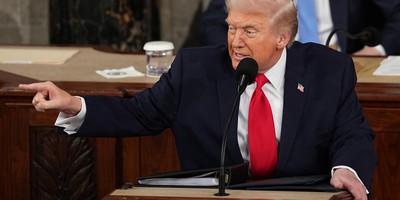As part of its campaign to promote its HHS birth control/early abortifacient mandate, the Obama Administration has repeatedly claimed that 99 percent of all women have used birth control at some point in their lives.
On February 10, in the White House Briefing Room, the President said: “Nearly 99 percent of all women have relied on contraception at some point in their lives –- 99 percent. And yet, more than half of all women between the ages of 18 and 34 have struggled to afford it.”
He apparently wasn't misspeaking, as a White House Fact Sheet distributed the same day said, “Today, nearly 99 percent of all women have used contraception at some point in their lives, but more than half of all women between the ages of 18-34 struggle to afford it.”
Yet the National Health Statistics Report (Number 36, March 3, 2011), released by the same department, HHS, that developed the mandate, says only 86.8 percent of women aged 15-44 have ever had vaginal intercourse.
Vaginal sex participation rates for women do not reach 99 percent until the 40-44 age cohort, at which point, birth control is becoming unnecessary and along with it any utility the HHS mandate could possibly have.
The President also claims "more than half of all women between the ages of 18 and 34 have struggled to afford" birth control. "Struggled" is subjective, but birth control is not expensive. Andrew McCarthy reports in the February 11 National Review that birth control pills cost as little as $15 per month. McCarthy further notes that diaphragms and Nuva Rings (both worn inside the vagina) cost as low as $15 per month, and the progestin–dispensing arm implant Implanon averages about $11 a month. Injections of the birth control shot Depo-Provera, McCarthy says, “go for about 40 smackers, and they last three months.”
Recommended
Condoms cost about a quarter, and aren't hard to find free.
Nor do women bear all the financial costs for birth control (though you'd be hard- pressed to find evidence that men ever open their wallets in White House and HHS statements and commentary). The Planned Parenthood-associated Guttmacher Institute reports that 16.1 percent of women rely on male condoms and another 9.9 percent the man's vasectomy as their birth control method. The man is probably paying at least his share of the cost of condoms and vasectomies and most likely more, particularly for the latter. Likewise, most married women have combined finances with their spouses, and birth control costs, like those for dinner, are likely to come out of the family income. So the $15 monthly or so cost of birth control in many cases being financed by two adults.
According to the Guttmacher Institute analysis, an additional 6.3 percent of women rely on the no-cost methods of withdrawal and periodic abstinence. We can be sure women suffer no financial "struggle" to afford methods that rely more on self- discipline than technology.
To be sure, the main objection to the HHS birth control mandate is that it is an unconstitutional limitation on our First Amendment right of freedom of religion. A second key objection relates to the nature of health insurance: it is designed to cover expensive, unpredictable events, not relatively low, routine expenses. (Otherwise, we'd buy insurance to cover our food bills.) But the fact that there are greater reasons than White House mendaciousness to oppose the birth control/early abortifacient mandate does not give the White House a license to make up numbers.

























Join the conversation as a VIP Member